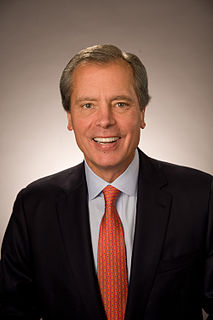Top 77 Bolivia Quotes & Sayings - Page 2
Explore popular Bolivia quotes.
Last updated on December 22, 2024.
Today, practically every country outside the West is undergoing an intellectual, political, and cultural churning, from China to Bolivia, Egypt to Indonesia, but we haven't really had, after the 1960s, a major oppositional culture in Western Europe and America. The Occupy movement was so startling and welcome partly because it was the first such eruption of mass protests in decades.
I have no regrets - in fact, I am pleased to have expelled the US ambassador, the Drug Enforcement Administration (DEA) and to have closed the US military base in Bolivia. Now, without a US ambassador, there is less conspiracy, and more political stability and social stability. Without the International Monetary Fund, we are better off economically.
Had drugs been decriminalized, crack would never have been invented and there would today be fewer addicts... The ghettos would not be drug-and-crime-infested no-man's lands... Colombia, Bolivia and Peru would not be suffering from narco-terror, and we would not be distorting our foreign policy because of it.
I learned to read at the age of five, in Brother Justiniano's class at the De la Salle Academy in Cochabamba, Bolivia. It is the most important thing that has ever happened to me. Almost seventy years later I remember clearly how the magic of translating the words in books into images enriched my life, breaking the barriers of time and space.
Bolivia also depends not only on tin and other minerals, but also depends on the gas and oil. A rational extraction should be made, taking care of the environment. We should give added value to this natural resource, and generate revenue to fight poverty with more resources, that come from natural resources.
Human relations tend to be more difficult when you're dealing with someone who weighs 30 kilograms more than you do. That's when you worry about whether a well-meaning gesture could produce complications. We have no problems with countries like Madagascar or Bolivia, for example. But Germany is our neighbor and we have a shared past. Besides, Germany is powerful and ambitious and more than four times as large as we are. It makes complete sense that we would act cautiously. It's simply Realpolitik.
Bolivia's majority Indian population was always excluded, politically oppressed and culturally alienated. Our national wealth, our raw materials, was plundered. Indios were once treated like animals here. In the 1930s and 40s, they were sprayed with DDT to kill the vermin on their skin and in their hair whenever they came into the city.
The battle with Men Who Explain Things has trampled down many women - of my generation, of the up-and-coming generation we need so badly, here and in Pakistan and Bolivia and Java, not to speak of the countless women who came before me and were not allowed into the laboratory, or the library, or the conversation, or the revolution, or even the category called human.
I returned to Kabul after a 27-year absence. I came away with some optimism but not as much as I had hoped for. The two major issues in Afghanistan are a lack of security outside Kabul (particularly in the south and east) and the powerful warlords ruling over the provinces with little or no allegiance to the central government. The other rapidly rising concern is the narcotic trade which, if not dealt with, may turn Afghanistan into another Bolivia or Colombia.
Argentina has elected a centre-right president, Mauricio Macri. Bolivia's Evo Morales, having lost a referendum that would have allowed him a fourth presidential term, spends his time muttering about CIA plots and issuing threats to jail journalists who persist in reporting influence-peddling scandals. The economy is a sputtering shambles.
The rich and powerful countries are trying to wreck as much as possible. You know, go off the cliff as soon as you can. Extract every drop of hydrocarbons off the ground and destroy the environment. At the opposite extreme are countries like Bolivia and Ecuador, indigenous people around the world, and first nations in Canada and tribal people in India, campesinos in Colombia... They're trying to save the commons.
Though people could, in principle, cross national borders to reach places where their work is more highly rewarded, they are in fact prevented from doing so. As a result, huge differences also persist in the price of labor, as you can see when you get a haircut in rural India or hire a driver or babysitter in Bolivia. You can easily buy such services at one-fiftieth the price you would pay in London, Hamburg or Manhattan.
Venezuela, Bolivia and Ecuador lived through times of cruel and ruthless capitalism where the workers, the masses of the population, saw themselves living in a precarious state of employment and subsistence conditions. The impact of this reality took hold and impacted the evolution of the social situation of those countries and even though that produced movements that were not exactly political movements but social movements.
Venezuela, Ecuador, Bolivia, and Nicaragua have made a tremendous leap just by rejecting the neoliberal adjustment policies, they are making a statement from the social perspective. Capital in these cases has not been protected in any way which along with non - interference of the state is what neo liberalism stands for. It has gone the other way around; they have looked for social policies from the political movements and then when they have acquired the power of those political movements they have become in charge of the State.












